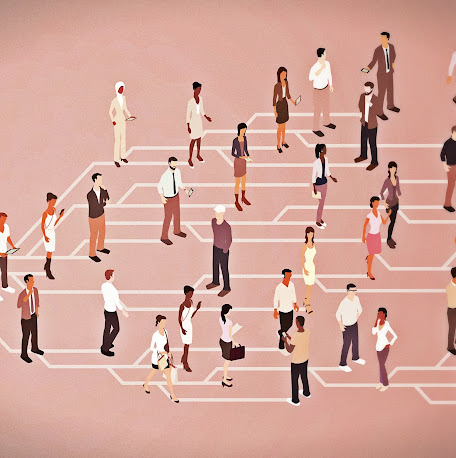When discussing innovation, there are many developments over the decades that have made significant strides in the innovation of technology. These advancements have thrown us toward a future run by technology. Today, I will be discussing diffusion theory and how that relates to cell phones.
Before we can look at cell phones using the diffusion theory, we must first discuss what the diffusion theory is. The diffusion theory is an idea that explains how new concepts are spread. When new innovations are first introduced to the world, not everyone is quick to accept and adopt them.
When looking at diffusion theory there is a clear chain that innovation passes through before it is widely accepted. The first to try innovations are the bold risk-takers. They enjoy new ideas and love the thought of the world-changing through this innovation. This group is known as the innovators.
The next to take on the idea are those who set trends. They like to influence people to broaden their minds about the prospect of an innovation. They promote the positives of the innovation and show others that the innovation has a purpose and can be widely loved if given a chance. These would be known as the early adopters.
Above, I mentioned people needing time to broaden their minds. Not everyone automatically accepts new innovations into society. The early majority have to wait and see how this innovation can be beneficial to their lives. Once they see it has a purpose, they adopt the innovation.
The late majority will wait until everyone else has adopted this innovation. They do not join in quickly on the adoption of an innovation. They slowly join over time.
Laggards never adopt a trend unless they have no other choice.
Now that we have discussed diffusion theory, we can apply it to the innovation of cells and smartphones. When looking at cell phones, there is a clear chain of how cell phones were integrated into society, which clearly shows the diffusion theory.
Innovators are the ones who love technology. They bought the wireless smartphone when it was new on the shelves and the price tags were ridiculous. These influencers were celebrities or prominent business people, who began to promote smartphones and saw the potential.
Once phones became more affordable and accessible, you began to see the early majority have a smartphone in everyday life. With the late majority finally joining in, the innovation was now adopted in communication with others. The laggards, such as grandparents, may have never gotten a phone other than the landline they already had or possibly a flip phone.
Smartphone innovation took over mainstream media quickly due to the access it gave people to communication and entertainment in one innovation. Then add how it can help manage your life with easy ways for productivity. How could that be any better?
Some did see it as a life enhancement. Some believed that owning a cell phone gave the right to privacy away. Others just did not like the idea of a life being glued to a phone.
Diffusion theory explains the spread of an innovation but what is not discussed are the negative side effects. Today we see many people such as younger generations going back in time to
no social media and flip phones. Many ask why?
The reasoning is very clear: with the development of cell phones came the development of social media and personal data being stored. Many believe that social media has
ruined the mental health of younger generations.
If you are like me, you may feel as if people do not need to have access to every moment of your life. With the increase of social media came the decrease of having a private life. Everyone having access to your life can be detrimental, especially if you become reliant on the validation of other people through social media.
When social media and cellphones both started off they made people feel connected in ways they had never been before. Distance didn't matter anymore. Friendships online became prominent and many felt a sense of finding community with social media.
On the other side, people choose to not have social media or a smartphone because that can cause harmful behavior with scrolling becoming your main focus and the risk of your privacy being taken. If someone decides to stay off social media they are ultimately avoiding fake news, negative mental health effects, and doom scrolling. On the flip side of that, choosing not to have a smartphone means that you are giving up your opportunities to hear important news, connections through social media, and recent trends that may be important.
When discussing which side outweighs the other, it is hard to tell with social media and cell phones which side is better. With all the positives and negatives listed above how do we come to a final conclusion? Well, ultimately that comes down to what is right for you.
I hope through this post, I have helped give you positives and negatives that could help you with your choice!












